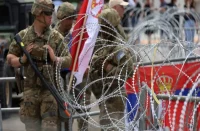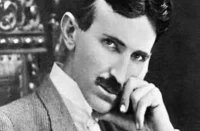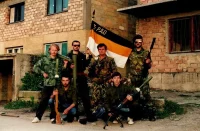Pyotr ISKENDEROV (Russia)
Facing an unprecedented economic crisis, the EU is hurriedly offloading the Balkan part of its agenda. The year’s major Balkan event – the EU-Balkan summit – will take place in Sarajevo on June 2. The previous summit, which convened in Brdo (Slovenia) on May 20, was plagued with scandals and, when all of the EU leaders eventually chose not to attend, degenerated into a meaningless formality.
The coming summit nevertheless features prominently on the EU foreign politics agenda for the first half of 2010. It is organized by Spain, the country holding the rotating EU presidency, and Spanish foreign minister Miguel Moratinos made it clear that the meeting in Sarajevo is planned as a highlight of Spain’s term at the helm of the EU. Unlike the Brdo summit which was supposed to bring together leaders of Balkan republics and the top EU foreign politics functionaries, the Sarajevo one will host the foreign politics chiefs of the US, Russia, and Turkey as the member of the Organization of the Islamic Conference and a guarantor of the Bosnian settlement. The forum will discuss the current situation in Bosnia-Herzegovina and the NATO-EU plan for the centralization of its statehood and, furthermore, attempt to produce a roadmap for a broader settlement of Balkan problems such as those of Kosovo and Macedonia.
The EU evidently risks to fall into the same trap as formerly in Brdo (or, rather, run into the same roadblock – Brdo means “mountain” in Slovene). The Spanish organizes of the Sarajevo summit, the UN Interim Administration Mission in Kosovo, and the local EU Mission are confronted with the same problem to which they owe the failure of the summit in Brdo. The key question is under what flag the Kosovo delegation will participate considering that – contrary to the pertinent UN resolution – the Kosovars reject absolutely any options other than being treated as an independent nation.
As far as I know, the Spanish side, assisted by head of the Kosovo UN Mission Italian diplomat Lamberto Zannier, has prepared beforehand several plans that it expected both Belgrade and Pristina to embrace. One of them was to actually abide by the June 10, 1999 UN Security Council Resolution 1422, leaving it entirely to the UN mission to represent Kosovo internationally. Serbia’s foreign minister Vuk Jeremic cited this particular plan when he stated several days ago that an agreement with Spain had been reached that the format of the Kosovo interim administration’s participation would correspond to the UN Security Council Resolution 1244. He explained that Kosovo would be represented by the UN Mission and that the arrangement would not contradict Serbia’s position based on its constitution.
Under the current circumstances, however, the EU will hardly act so as to avoid contradictions to Serbia’s constitutional position on Kosovo. The organizers of the Sarajevo summit have two additional blueprints for the event. According to the first one, the delegations will meet in Sarajevo without national symbols. Belgrade reacted to the idea with a chill from the outset and stated that, regardless of the particular formula to be used during the summit, Pristina – in contrast to Serbia – cannot be represented as a sovereign country in Sarajevo or elsewhere. Jeremic said that for Serbia this was the red line it would never cross.
Meeting without national symbols has been tested as a format for an international forum during the Geneva consultations on the Caucasian conflict resolution involving the UN, the EU, OSCE, Russia, the US, Georgia, Abkhazia, and South Ossetia. At that time the experimental format was viewed with a measure of understanding.
Information became available recently, however, that the format of the Kosovo representation in Sarajevo is going to be unprecedented. UN mission head Lamberto Zannier will indeed sit together with the so-called “Kosovo foreign minister” Skender Hyseni, but the former will only represent himself and his own institution, leaving to the Kosovars full freedom to act and speak at their own discretion. The scheme was outlined by UN interim administration’s spokesman Russell Geekie who said in an interview to Albania’s Koha Ditore that Zannier would only represent the UN mission in Kosovo, but in no way – Kosovo’s institutions.
The plan, a common brainchild of the UN, the EU, and the Kosovo administration, caused an outcry in the ranks of the Albanian opposition in Kosovo. Its three parliamentary opposition parties – the Alliance for the Future of Kosovo, the New Kosovo Alliance, and the Democratic League of Dardania – demanded that Hasim Thaci’s government explain what exactly Lamberto Zannier’s presence at the EU-Balkan summit would signify. Burim Ramadani, a representative of Kosovo’s most influential Alliance for the Future of Kosovo stressed that the Kosovo government would have to ensure full clarity as to what Zannier’s status at the meeting would be and what he would be representing. Mimoza Kusari from the New Kosovo Alliance complained that thus Kosovo would be represented in the framework of the UN Security Council Resolution 1244 and of its pre-independence status. In an attempt to reassure the opposition, Kosovo’s deputy premier Hairedin Kuci was forced to admit that its claims were to an extent warranted and that Zannier’s presence would indeed cast a shadow over Kosovo’s participation in the summit.
It is imposable to predict at the moment whether the summit is going to be a success of the Spanish and Bosnian diplomacies and even whether its organizers will even manage to convince all those invited to sit at the same table. In any case, the coming EU-Balkan summit is of great importance to Spain due to an array of reasons. As one of the five EU countries which continue denying recognition to Kosovo (the other four are Greece, Cyprus, Romania, and Slovakia), it has to maneuver to save face in dealing with the Kosovo problem and at the same time to appease the Brussels bureaucracy which has long decided in favor of the Kosovo independence. The crisis which is increasingly spreading over South Europe tends to erode Madrid’s positions, and in the settings Spain will be able to hold its own only to the point at which the dissent puts in jeopardy its prospects for the EU financial infusions.
As a noteworthy gesture, a EU diplomat indicated amid the consultations on the format of Kosovo’s participation in the Sarajevo summit that Serbia has no reasons for optimism. Outgoing Swedish ambassador to Belgrade Krister Bringeus stressed that Serbia should not hope to be admitted to the EU without recognizing the independence of Kosovo, thus telling the Serbs explicitly where the red line in the Kosovo context lies for the EU.
Yet another circumstance must be taken into account: the dispute with the Albanian separatists from Kosovo currently threatens the summit which Brussels expects to greenlight the elimination of Republika Srpska, which it invariably describes as a stronghold of Serbian nationalism and separatism. Somehow, Western policy-makers do not seem to worry much over the obstacle.
The results of the Sarajevo summit are sure to be promptly submitted to the Bilderberg Club, one of the three main secretive organizations behind the new world order whose annual conference will open on June 3.
Source: Strategic Culture Foundation














Pingback: Balkans in the Nets of the New World Order (II) | Oriental Review
WpiQpG4elNI